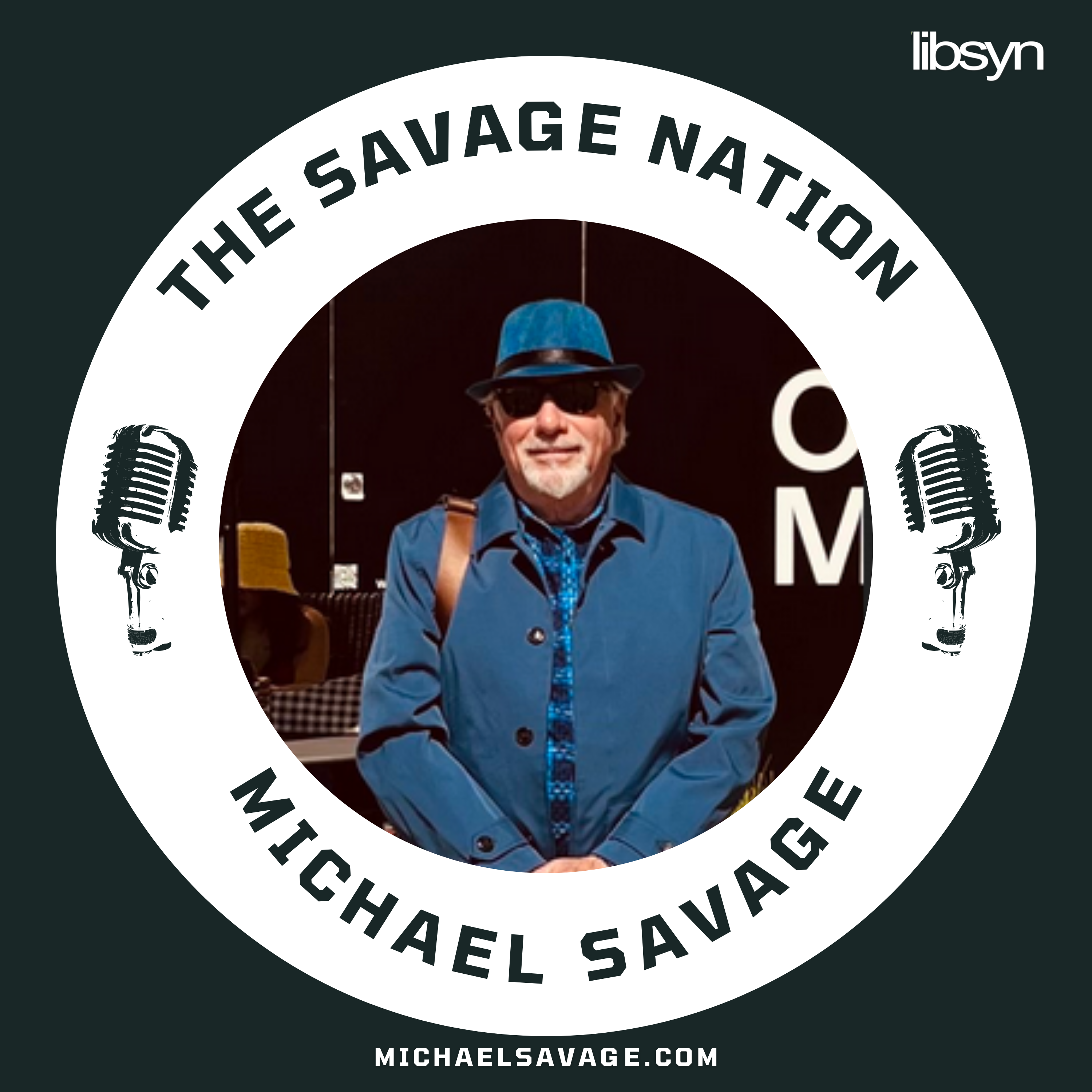
A Think First Podcast with Jim Detjen
Think First is a short-form podcast that makes you pause — before you scroll, share, or believe the headline.
Hosted by Jim Detjen, a guy who’s been gaslit enough to start a podcast about it, Think First dives into modern narratives, media manipulation, and cultural BS — all through the lens of gaslighting and poetic truth.
Some episodes are two minutes. Some are ten. It depends on the story — and the energy drink situation.
No rants. No lectures. Just sharp questions, quick insights, and the occasional laugh to keep things sane.
Whether you’re dodging spin in the news, politics, or that “trust me, bro” post in your feed… take a breath. Think first.
Visit Gaslight360.com/clarity to sharpen your BS filter and explore the 6-step clarity framework.
A Think First Podcast with Jim Detjen
#68 We Pay. They Podium. — How U.S. Colleges Train the World’s Olympians
America’s college sports system is the best in the world — but who’s really reaping the rewards? In swimming, more than 15% of NCAA athletes are foreign, with some top programs like University of Florida running over 60% international rosters. These athletes train in U.S. clubs, compete for U.S. schools, and then take their peak performance home — winning Olympic medals for other countries. Add in new roster limits from House v. NCAA and the squeeze on American athletes becomes even tighter. In this episode, we unravel the gaslighting and poetic truths behind college sports, Olympic pipelines, and why the service academies may be the last guaranteed lane for U.S. swimmers.
Stay sharp. Stay skeptical. #SpotTheGaslight
Read and reflect at Gaslight360.com/clarity
Take care, Mark.
SPEAKER_01:What if
SPEAKER_00:the United States is quietly funding the medal counts of other nations? One scholarship, one pool, one lane at a time. Because this isn't just theory, it's names you know. Joseph Schooling moved to Florida as a teen, trained at the Bowles School, but his gold medal went to Singapore. Ilya Karun, raised in Las Vegas, swimming U.S. club meets since age 5, but he races for Canada and is a metal machine at Arizona State under Bob Bowman. And Canadian media admitted it outright after Paris. Born in Canada, made in the USA. Summer McIntosh, training full-time with the Sarasota Sharks in Florida. Josh Leendo, sharpened his edge at the University of Florida, racing next to Caleb Dressel. Swimming Canada's own high-performance director said it proudly, they're Canadian, no matter where they train. Translation, thanks America. Today, we'll zoom in on swimming to show how this pipeline works in just one sport. But it's not limited to the pool. The same pattern repeats across NCAA athletics. Tennis? More than half of rosters are foreign. At that point, the U.S. Open might as well hand out diplomas with the trophies. Soccer? Nearly a third international, which means half the time the U.S. women's team is losing to countries we trained. Track and field? Distance finals look less like college sports and more like Kenya This is Think First, where we don't follow the script. We question it. Because in a world full of poetic truths and professional gaslighting, someone's got to say the quiet part out loud. What if the United States is quietly funding the medal counts of other nations? One scholarship, one pool, one lane at a time. Because here's the odd pattern. America trains the world's best swimmers. In our clubs, in our colleges, on our dime. And then, they stand on the Olympic podium draped in another country's flag. And somehow, we're told this is normal, even good, that it's the beauty of sport. Let's test that story. If roster spots are finite, who exactly gets squeezed out when foreign athletes fill them? If scholarships are funded by taxpayers and alumni, whose future are we really investing in? If competition is supposed to sharpen everyone, how does that help the American who never makes the roster to compete at all? If made here is the NCAA slogan, why does for elsewhere keep showing up on the Olympic medal table? and if you were footing the bill. Would you call this generosity or just bad math? Here's where the poetic truth comes in. Poetic truth says, sport is global. Diversity enriches us. Everyone wins. It feels inspiring. It sounds noble. And here's the gaslight. Gaslighting says, no Americans are losing opportunities. Scholarships are limitless. The system works for everyone. That's when the room starts to spin because trade-offs are real and pretending otherwise is the trick. Now, here's the nuance most people miss. These athletes weren't nobodies when they arrived. They were already good, already fast, already dangerous. But the NCAA system, the coaching, the facilities, the weekly pressure cooker of dual meets and championships, that's what takes them from really good to world champion. Leon Marchand was a promising French junior. After two seasons at Arizona State, he shattered Michael Phelps' world records. Maggie McNeil was a strong Canadian recruit. At Michigan, she became an NCAA champion, then an Olympic gold medalist. Joseph Schooling was a teenage standout. Four years at Texas turned him into the guy who beat Phelps in Rio. The pattern is hard to miss. They arrive with potential, they leave with medals, and those medals don't count for Team USA. Want a few numbers? Today, 15% of NCAA swimmers are international. That's not a few. That's a lane or two on every relay. At the NCAA championships, non-US men win about 27% of events, women about 15%. That's not background noise. That's the podium. For American kids, only 2.5% of high school boys and 3.2% of girls ever make it to Division I swimming. every foreign recruit edges out dozens of homegrown athletes who may never see that lane. And at the Paris Games, 840 international Olympians were NCAA athletes representing 125 countries. In practice, the NCAA is the world's most generous Olympic donor. It just doesn't put its name on the checks. And if you think this is subtle, think again. On Florida's men's roster, one of the most dominant in the nation. 62.5% of swimmers are foreign-born. That's the majority of the team. Virginia Tech sits at 35%. Georgia, 41%. Tennessee, one-third. These aren't fringe programs. These are the powerhouses shaping NCAA podiums and Olympic pipelines. So when those teams dominate, American athletes aren't developing under higher competition. They're watching from the stands. Contrast that with Texas. Under Eddie Reese, the Longhorns built one of the greatest dynasties in NCAA history, largely with American recruits, dozens of NCAA titles, multiple Olympians, and a sustained run at the top. Texas proved you don't need to load your roster with foreigners to win. The talent at home has always been enough. And here's the kicker. Many of these internationals don't arrive at 18 like American freshman. They come at 20, 21, even 22, already hardened by years of international racing. When a 22-year-old foreign recruit with world championship experience dives in against an 18-year-old U.S. freshman, that's not talent versus talent. That's maturity versus adolescence. And collegiate coaches know which one wins points today. And remember, coaches coach to win banners today. That's the job. The ripple effects for Team USA are some else's problem. Then there's the money. One foreign swimmer on a full scholarship? About$60,000 a year. Over four years?$240,000. Add in travel, gear, coaching, medical support. You're closer to$300,000. Multiply by five internationals on a roster and you're easily past a million dollars. That's roughly a million dollars in American resources invested in polishing another nation's metal hopeful. And sometimes it's even worse, a double subsidy. Some internationals also receive stipends or funding from their home federations while collecting NCAA resources. U.S. dollars on one side, foreign government checks on the other, all fueling metals that fly a different flag. Now, defenders will say, but internationals push Americans to be better. Iron sharpens iron. Maybe. but only if the American actually makes the team. Iron doesn't sharpen iron when one piece is left outside the pool. And in a world of roster caps and scholarship limits, that's exactly what happens. The reality? Fewer reps, fewer coaches' eyes, fewer chances for Americans in the pool. That's not sharpening. That's crowding out. What if scholarships came with a flag attached? What if the NCAA is already the biggest donor to foreign Olympic committees and nobody noticed? What if the lanes your kid dreamed of were already spoken for by another nation's champion in waiting? What if the real U.S. medal table isn't on NBC but hidden in the fine print of foreign rosters? Picture a family that poured every weekend, every holiday, into club meets and travel. Thousands in dues, thousands in airfare, endless hours. And then, the roster spot they were hoping for goes to someone who stepped off a plane already medal-ready. It's not on the kid, it's not even on the coach. The real question is, why is the system built this way? And of course, it's not just swimming, tennis, soccer, track. The trend runs through them all, but the pool shows the pattern clearly. No other league on earth pays to develop rivals for free. The NCAA does, with scholarships, state funding, and a smile. And here's the part most people miss. It's not just about pride, it's about competitive risk. Every medal earned by a foreign NCAA product raises the prestige of their home federation. That prestige brings sponsorship, funding, and momentum for America's rivals. We're not just exporting talent, we're exporting competitive advantage, and we're paying for the privilege. I've worn a uniform. Mission and intent matter. If the mission is opportunity for American students and the intent is national competitiveness, then your roster should look like you mean it. This isn't about banning foreigners. It's about balance, about honesty, about asking whether the trade-offs we're told don't exist are staring us right in the face. And maybe it's about noticing that poetic truth has been sold to us as policy. Everyone wins. when in reality, somebody always loses. In the end, it's not really about lanes or medals. It's about how institutions sell us a poetic truth to keep the system running. And if you don't stop to ask, you'll miss the gaslight glowing in plain sight. At the rate we're going, the next Michael Phelps might not be choosing between Power 5 schools at all, but between Olympic trials and officer training. Because with House vs. NCAA roster caps and rosters stacked with foreign recruits the service academies, Army, Navy, and Air Force may be the last place an American swimmer can still get a guaranteed full ride and a guaranteed lane. If the last guaranteed lane belongs to the United States service academies, that's a credit to them and an indictment of everyone else. You don't need all the answers, but you should ask the one question no one at the medal ceremony dares to. Whose flag are we really paying for? I'm Jim Detchen, and this has been Think First. You don't need all the answers, but you should question the ones you're handed. Until next time, stay skeptical, stay curious, and always think first. And if this story about roster spots, subsidies, and the fine print of college sports made you raise an eyebrow, go back and check out episode 61, NIL Unmasked. It's where we pulled apart how college athletics went pro without ever saying it out loud. Together, the two episodes might give you a clearer picture of the game behind the game. And for those who want to take this further, my new book, Distorted is on the way this October. It unpacks the gaslighting and poetic truths shaping not just sports, but politics, culture, and everyday life. You'll find it at Barnes& Noble, Amazon, Apple, and Kindle. Or grab it first with an exclusive pre-order at jimdetchin.com.






















